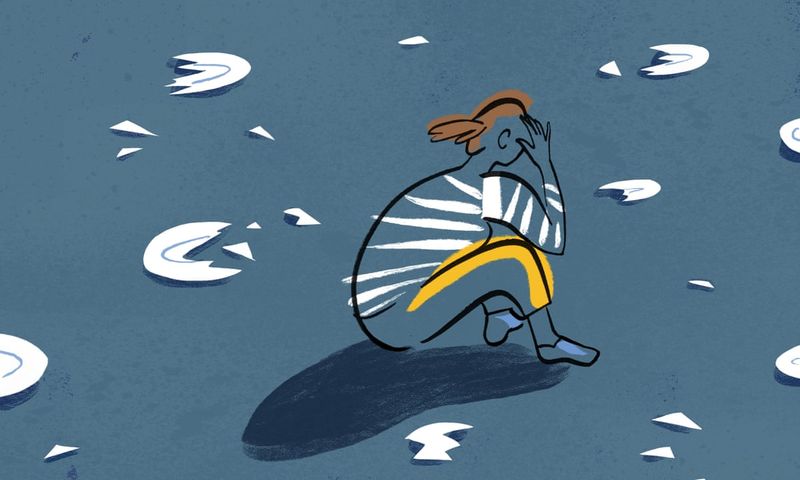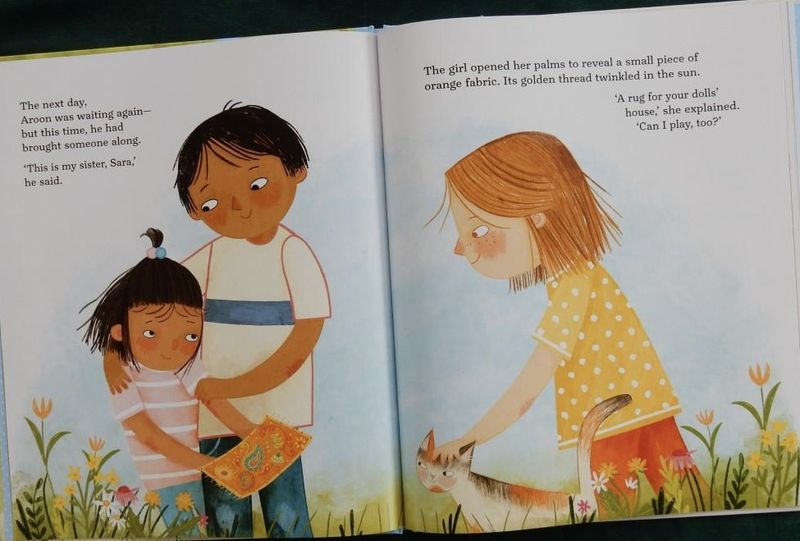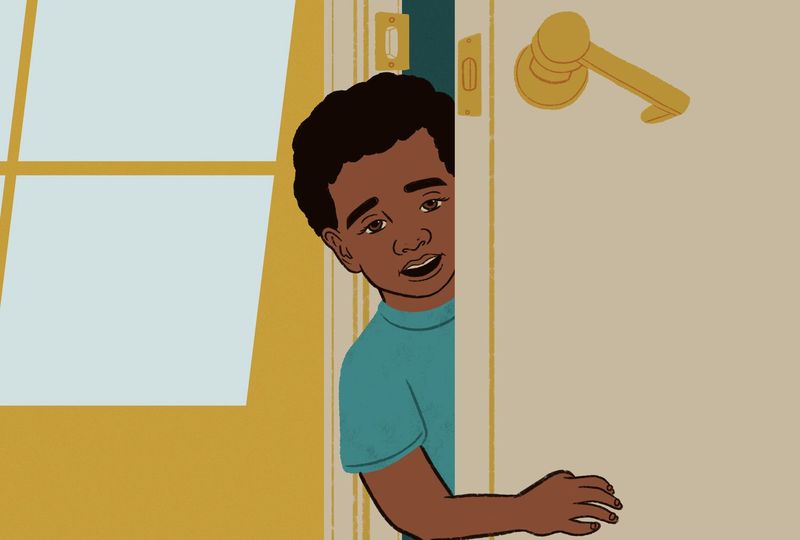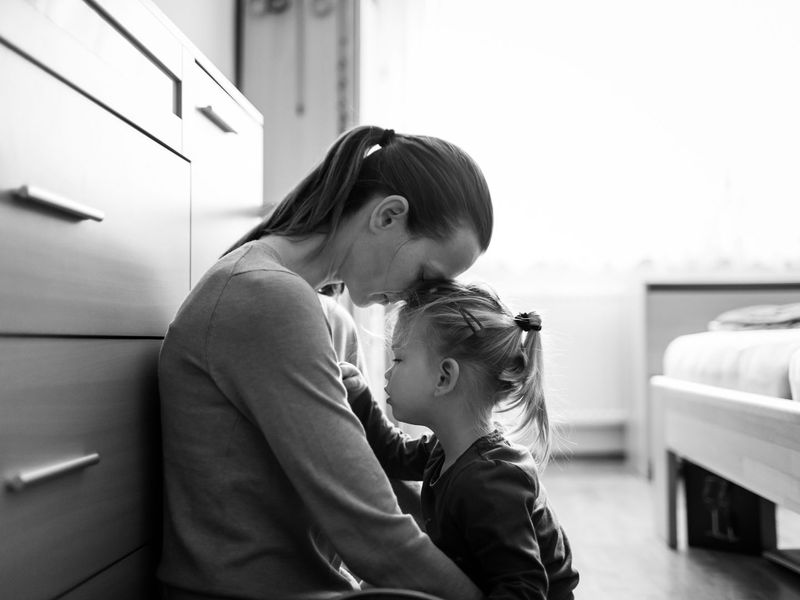New Study Shows 17 Reasons Gen Z Parents Don’t Want To Read To Their Kids
Parenting is a pressure cooker, and for Gen Z, reading to your kids isn’t always the storybook moment people pretend it is. You’re not lazy or heartless because you don’t want to crack open Goodnight Moon tonight.
The truth is, there are a thousand invisible forces pulling at your attention, and sometimes, reading aloud just lands at the bottom of that list. This isn’t about blame. Believe me, I get it.
It’s time to be honest about what’s changed, what it feels like in the real world, and why even the most loving parents might sigh at the thought of another bedtime story. Here is seventeen raw, specific reasons that make reading aloud tough for today’s parents—without judgment.
1. The Guilt Spiral

Here’s the feeling: every choice you make as a parent is wrong no matter what you choose. Not so comforting, right. The guilt spiral is real. You want to do everything right, but the pressure to be a perfect parent suffocates you, especially when every expert and Instagram post says you’ll fail if you skip reading time.
Sometimes, picking up a book just reminds you of what you’re not doing. It’s not that you don’t care—it’s that the expectations feel crushing. The more you think about it, the worse you feel, and then you just want to avoid the whole thing altogether.
It’s like a loop you can’t break out of. One skipped story turns into five, and before you know it, guilt becomes the soundtrack of your evenings. Parents don’t talk about this nearly enough, but it’s there, humming under everything.
2. Too Many Screens, Not Enough Time

Let’s be honest—screens are everywhere. You probably grew up with them in your pocket, so it’s no surprise they fill up your family’s evenings now. Netflix is easier than finding a book that doesn’t bore you or your kid.
There’s no judgment here. When everyone’s tired, plopping down with a show feels like relief, not failure. Plus, sometimes your phone is the only way you get a break from the noise and chaos.
But the screens creep in quietly and replace reading time before you even realize it. Suddenly, books feel like work and cartoons feel like comfort. That’s the trade-off, and it’s one nobody warned us about.
3. Books Remind Them of School, Not Fun

Remember that feeling when school made you read books you didn’t pick? For a lot of Gen Z parents, reading feels like homework, not a joy. It’s hard to shake that mindset when you’re tired.
You want your kid to love stories, but reading aloud feels forced—like another box to check off. Maybe you even hear your own childhood teacher’s voice that makes you read out loud. Not exactly magical.
The pressure to “teach” instead of “share” ruins the moment. If your own memories of reading are more about obligation than excitement, it’s no wonder you don’t reach for a book at bedtime.
4. Burnout Is Real

Parenting didn’t come with a pause button. You woke up tired and went to bed exhausted, and somehow there’s still more to do. Who has the energy to do voices and act out every page?
Burnout isn’t just about work or chores. It seeps into the moments that are supposed to be sweet, like reading together. At times, you’re just too spent to care if tonight’s book gets read.
You might even dread the thought of one more demand, even a small one. It’s not about loving your kid less—it’s about having nothing left to give. That’s real.
5. No One Read to Them

Some of us never had bedtime stories. The idea of curling up with a book feels foreign, like a ritual you missed out on. You can’t draw from a memory that doesn’t exist.
Trying to invent this tradition feels awkward and forced. There’s a quiet ache in realizing you don’t know how to make reading special, because no one showed you.
Instead of feeling inspired, you just feel out of place. It’s hard to pass on something you never got. That gap feels bigger than people think.
6. Reading Feels Like Another Task

You already have a checklist that outnumbers your hours. Reading to your kid gets lumped in with laundry, emails, and the never-ending list of things you’re supposed to do.
It’s not that you don’t care about literacy or bonding. It’s just that reading feels like a chore when everything else feels urgent, too. The magic gets squeezed out by overwhelm.
You resent the idea that you’re failing if you don’t “do it all.” That resentment sits heavy. No wonder the book stays closed.
7. Books Aren’t Written for Modern Parents

Ever open a book and wonder who these stories are really for? So many children’s books still feel like they’re written for another era. The language, the lessons, the endless talking animals—it can feel tone deaf to modern life.
You want books that reflect the world your kid actually lives in. Sometimes you pick up a classic, and it just feels stale or even problematic. Who wants to read something that makes you cringe?
It’s tough to fake excitement for stories that don’t speak to your reality. Maybe that’s why your child tunes out, too.
8. Language Barriers and Cultural Gaps

If your family speaks more than one language, reading gets complicated. Maybe you’re more comfortable telling stories in your first language, but the books are all in English. Or you stumble over words your kid learns at school.
The awkwardness of switching languages mid-story or worrying your accent will confuse your child—that’s real. You want to share your culture, but the books don’t always make space for that.
You just skip reading instead of struggling through it. You tell yourself you’ll try again tomorrow, but another day slips by.
9. Kids Are Restless, Not Ready

Have you ever tried to read to a kid who just wants to bounce off the walls? It can feel like chasing a tornado. The vision of a calm, snuggly story time rarely matches the reality.
You get through three pages before someone’s upside down on the couch. Sometimes you wonder if it’s even worth trying. The frustration builds fast.
You tell yourself maybe tomorrow will be the night. But there’s no guarantee your child will ever sit still long enough for that dreamy book moment.
10. Stigma Around Not Enjoying It

There’s this myth that every parent loves reading to their kids. When you don’t, you feel broken, or worse, ashamed. It’s a secret you keep, because who wants to be that parent?
You fake enthusiasm or make excuses. You wonder if you’re alone in dreading story time, even though you know better. It’s lonely to carry around that secret.
The pressure to pretend robs any chance of real connection. It’s easier to just skip reading than live with the self-doubt.
11. Mental Health Struggles

When anxiety or depression hits, even the smallest things can feel impossible. Picking out a book and reading aloud? It’s like trying to climb a mountain when you can barely get out of bed.
You love your child, but your mind is heavy. There’s guilt in that, too—knowing you want to do more but can’t always push past the fog.
The best you can do is just survive the day. Reading together becomes a casualty of survival mode, and that’s nothing to be ashamed of.
12. Partners Don’t Share the Load

It stings when you’re the only one trying. Maybe you’re the parent who always pushes for the routine, but your partner checks out or leaves you to handle it.
Carrying the weight alone sours the whole experience. You start to wonder, why bother at all if it’s just you? The resentment builds, and story time becomes a battleground.
In certain moments, silence is easier than asking for help again. Books gather dust when teamwork disappears.
13. Financial Stress and Book Access

Books cost money. If you’re living paycheck to paycheck, story time can feel like a luxury you can’t afford. Public libraries feel out of reach or don’t have what you need.
You scroll through apps, but even e-books charge for the newest titles. Your kid wants the shiny book from YouTube, but you’re counting pennies. Shame seeps in where there should be joy.
It’s hard to make reading a habit when access is a privilege, not a guarantee. Not everyone gets that, but you live it every day.
14. Overstimulation and Noise

Some days, your house feels like it’s vibrating with noise. The TV’s on, toys beep, the baby screams, your phone pings—how is anyone supposed to focus on a quiet book?
Your brain’s fried before you even open the cover. Reading aloud takes a kind of calm your space just doesn’t have. You wish you could escape the chaos, not add to it.
You promise yourself you’ll try when things quiet down, but that silence never seems to come. So the book sits, waiting for a calm that doesn’t arrive.
15. Stories Don’t Reflect Their Family

It’s weirdly alienating when every book family looks nothing like yours. Maybe it’s a different race, gender, or just a vibe that doesn’t fit. You want your child to see themselves in stories, not feel like outsiders.
Flipping through pages that erase your reality gets old fast. Occasionally, you just give up on trying. The books don’t get it, so why bother?
Authenticity matters. You want stories that make your kid feel seen, not invisible.
16. Shifting Definitions of Bonding

Who says reading is the only way to bond? Maybe you and your kid giggle over TikToks or fall asleep to a podcast together. Old rules don’t always fit new generations.
You connect in ways that matter to you, not just the ways your parents did. Maybe the book stays closed, but your relationship still feels strong.
Bonding looks different for everyone. That doesn’t make you a bad parent—it makes you real.
17. Fear of Doing It Wrong

Ever freeze up, worried you’ll stumble on the words or make the voices sound silly? Fear of messing up sucks the fun out of reading. You want to get it right, but worry you’ll get it wrong.
Maybe your kid laughs at your attempts, or worse, looks bored. You wonder if you’re ruining their love of stories instead of sparking it.
Now and then, you just avoid the risk. It’s easier to say not tonight than to face feeling foolish in front of your own child.







